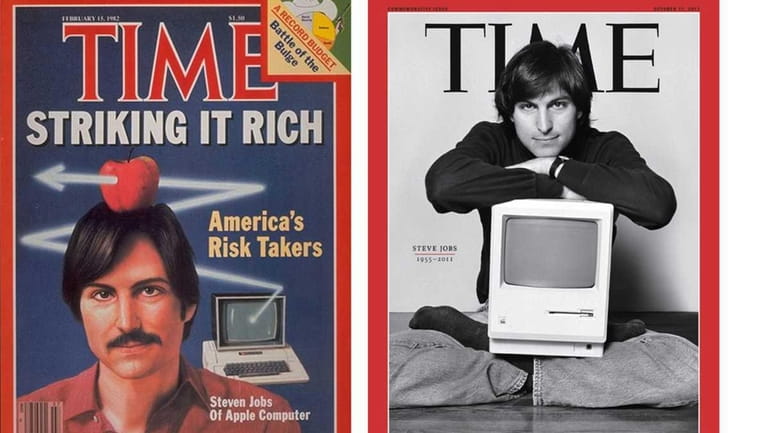Editorial: Steve Jobs, digital-age Midas

Steve Jobs was on the cover of Time magazine seven times, including this week's issue.
Steve Jobs was nothing if not persuasive. "Do you want to spend the rest of your life selling sugared water," he asked a former Pepsi-Cola executive he was trying to hire, "or do you want a chance to change the world?"
To Jobs himself, the choice was obvious; the question is whether even he had any idea how profoundly he would succeed. By the time he died on Wednesday at just 56, the co-founder and former chief executive of Apple Inc. had transformed personal computing, revolutionized the music business, reinvented animated movies, and was in the process of transforming the way books and periodicals are consumed.
Steve Jobs wasn't a trained engineer or computer scientist, yet like such pathbreaking predecessors as Henry Ford, who transformed the American landscape by making cars available to all, and David Sarnoff, who saw that radio and TV could someday change the world, Jobs had a genius for democratizing technology and marrying art to commerce.
He eschewed focus groups and ignored naysayers. When other companies made bland-looking products of intimidating complexity, he insisted on voluptuous objects of desire that were at once gorgeous and inviting. The taste he trusted was his own.
What he didn't do was play it safe -- or try to make a quick buck. In an age of corporate timidity, short-term thinking and financial hocus-pocus, Jobs took breathtaking risks on transformative products that people had no idea they wanted until he presented them in his inimitable style. And he bounced back from failures that might have crushed a lesser person, re-emerging from the wilderness -- to which he was dispatched by that same former soda executive -- to build Apple, at one point this year, into the world's most valuable company. Since Jobs' return to Apple in 1997, its stock is up more than 9,000 percent.
Neither Jobs nor Apple invented the graphical interface, the computer mouse, the portable stereo, music downloads or smartphones. But Jobs and Apple reinvented these underutilized technologies to upend whole industries -- and change the world's culture. Apple's computers forced the competition to adapt or die. Apple's iTunes store, since opening in 2003, has sold more than 16 billion songs, all but demolishing the traditional infrastructure of music distribution. Apple's iPods and iconic white earbuds made digital music players ubiquitous everyday devices. Apple's iOS, the operating system on its iPod Touch, iPhone and iPad, helped make handheld computers seem nearly indispensable -- and propel sales of more than 250 million units. The iPad, along with Amazon's Kindle, is changing how people read, which in turn will change the nature of books. Apple, among many others, has been working on changing how we watch TV and movies as well.
Jobs was an autocrat, a perfectionist and perhaps even a fanatic in his devotion to making products that he claimed were "insanely great." Some were, and some weren't. But as a visionary businessman, Steve Jobs met that standard -- and then some. hN
